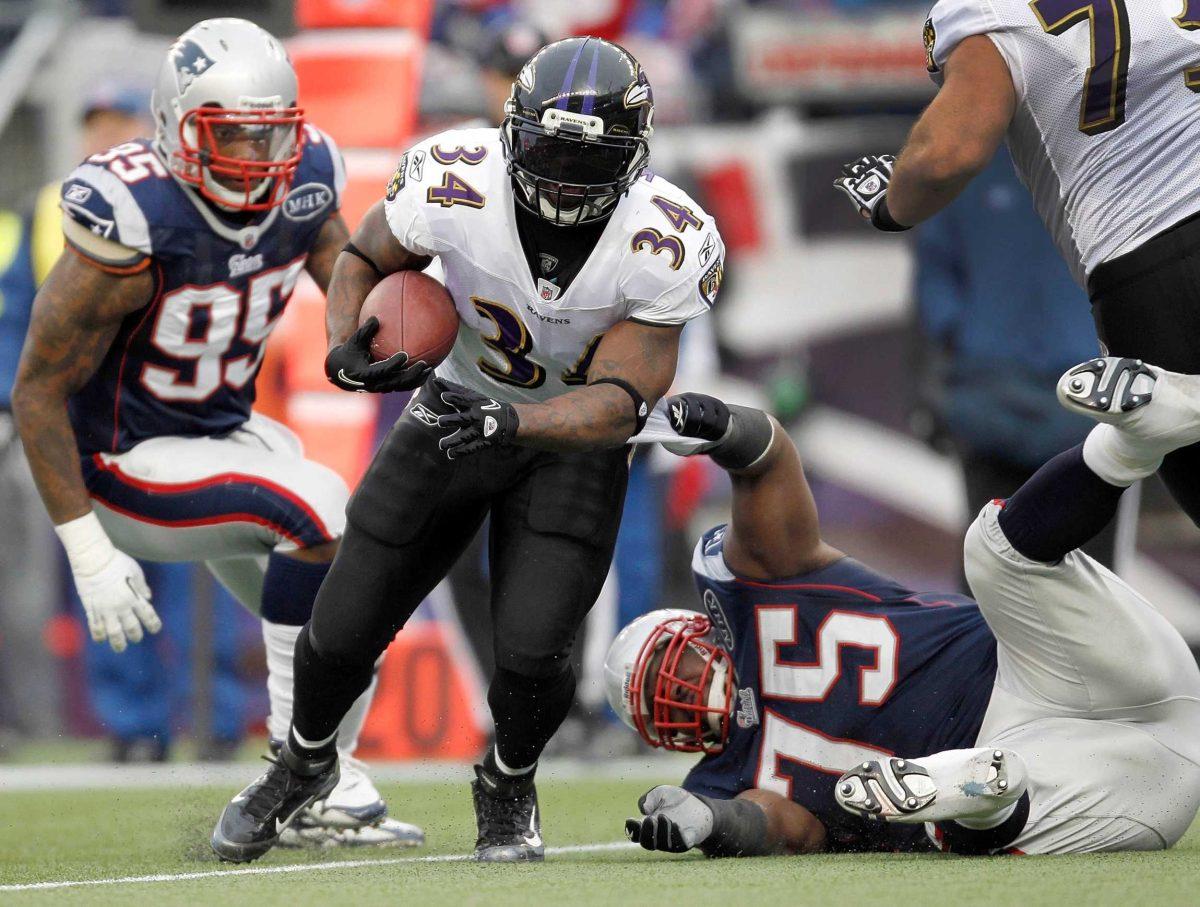On Aug. 2, 2004, Errick Lynne Williams Jr. prematurely retired from football.
Like great running backs before him who retired too early from the game, such as James Brown and Barry Sanders, Williams decided to hang up his cleats while still a top NFL running back for the Miami Dolphins.
The decision was mostly due to Williams failing numerous drug tests and not wanting to deal with the public humiliation of a year-long suspension.
He came back for brief stints with the Dolphins, Toronto Argonauts of the Canadian Football League and Baltimore Ravens, still showing glimpses of the running back who won the 1998 Heisman Trophy at Texas.
On Tuesday, Williams announced that he was retiring again from the NFL, this time after 11 seasons.
One can only imagine what Williams could have accomplished if his career was never interrupted
.
Before Williams took a year off to fine-tune his inner chi, he ran for 1,000 yards in four straight seasons.
When he returned in 2005, he reminded NFL fans of why former Saints coach Mike Ditka traded nearly two drafts to get him in the 1999 NFL Draft.
If he didn’t miss the 2004 and 2006 seasons, he might be further up on the all-time rushing list. He currently he sits at No. 26.
Williams, unlike the countless backs who made quick stops at the top, reminded onlookers he was more than a football player.
During his sabbatical from football, he appeared on numerous television programs, such as “60 Minutes,” advocating the preservation of his body and mind for life after football.
The acclaimed ESPN “30 for 30” documentary “Run Ricky Run” chronicled his day-to-day activities.
Williams tried to become a healer in the woods of California, among other abnormal hobbies.
It showed what Williams really was — a human being.
Give credit to Williams for not conforming to modern football society and refusing to let other people decide when he should walk away from the game.
Other running backs, like Priest Holmes and Shaun Alexander, had great three- or four-year stretches and then flamed out shortly after.
I can’t blame Williams for not wanting to be hobbled by the age of 40.
Teammates at Williams’ different stops during his career always tabbed him as a “special guy” who was usually shy around the locker room and at practice. Williams’ rough childhood in San Diego with a single mother was a cause of his introverted personality.
At no point in his NFL career was there ever a question of how much talent the 10,000-yard rusher possessed.
The problem was always his motivation. At times, skeptics questioned whether he was giving 100 percent every time he put on the helmet.
It was refreshing to see such a publicized athlete take a stand against the norm for NFL football players. Williams showed it’s possible to pursue other options outside of sports and still have success in the league.
I never heard a teammate say anything bad about Williams. Even late in his career, when he was regulated to backup duty, he never made a disturbance in the locker room.
After coming into the NFL with so much hype and expectations, Williams walks away from the NFL quietly out the back door — and I don’t think he minds at all.
Micah Bedard is a 21-year-old mass communication senior from Houma. Follow him on Twitter @DardDog.
____
Contact Micah Bedard at [email protected]
Mic’d Up: Ricky Williams shows there’s more to life than football
February 8, 2012
Baltimore Ravens running back Ricky Williams runs between New England Patriots defenders Jan. 22 during the AFC Championship.






